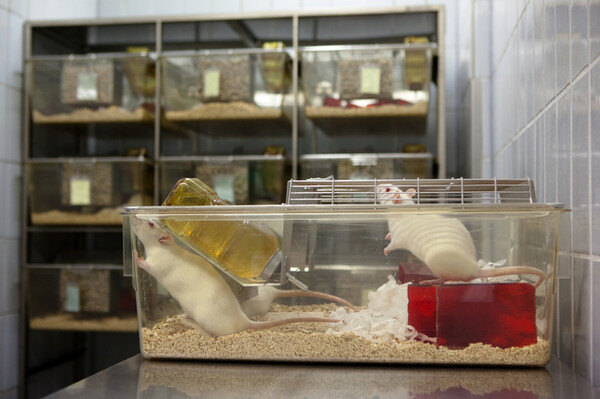The U.S. Food and Drug Administration has prohibited the submission of animal testing data mainly used in preclinical and nonclinical trials in future drug licensing applications, drawing the attention of Korean businesses.

On Wednesday, KoreaBIO released a report analyzing contents related to animal test data submission in the related U.S. law revised in December.
According to the report, FDA will no longer be able to reinforce the submission of animal test data, according to the revised Federal Food, Drug, and Cosmetic Act included in the Consolidated Appropriations Act of 2023 involving $1.65 trillion signed by U.S. President Joe Biden.
That excluded one of the requirements to confirm medical products’ efficacy and safety demanded by the FDA for more than 80 years.
The U.S. law defines nonclinical tests as “tests conducted in vitro, insilico, or in chemical, or nonhuman in vivo before or during clinical trials to examine medical products’ safety and effectiveness.”
As examples of nonclinical trials, it also presented five types -- cell-based assays, organ chips or microphysiological systems, computer modeling, other nonhuman or human biology-based test methods like bioprinting, and animal testing.
Aside from the food, drug, and cosmetic law, the U.S. government also amended Public Health Service Act, making the law to replace animal tests applicable to toxicity evaluation rules needed for applying for biosimilar approvals.
“It is uncertain whether such legal revisions will change the U.S. FDA,” the report said. “This is because the amendment has made it possible to conduct clinical trials without animal tests, that does not necessarily mean they must do.”
It noted that the FDA’s toxicity experts are known for their conservative nature, preferring animal tests partly because they can examine the effects of toxins in potential drugs from all organs after they euthanize animals.
“This notwithstanding, the revisions will offer opportunities for sincerely discussing the appropriateness of animal-replacement tests while providing legal grounds to speed up research and development of animal-replacement methods, like bio-printing,” it said.
Meanwhile, experts present various outlooks on the changes that legally recognized animal-replacement tests or whether they will bring about enormous changes in the drug licensing system.
Some say researchers will continue to rely on animal tests, noting that the animal-replacement methods are in their early stage and cannot replace animal tests for the next several years and that the replacement methods have been under development for more than a decade.
In reality, the FDA still requires toxicity tests in one rodent species, such as mice, and one non-rodent species, such as monkeys and dogs, to approve drugs, forcing companies to conduct many animal tests yearly for these tests.
In Korea, Rep. Han Jeong-ae of the opposition Democratic Party of Korea proposed a bill on the Act on the Development, Distribution, and Promotion of Use of the Animal Replacement Test in December.

